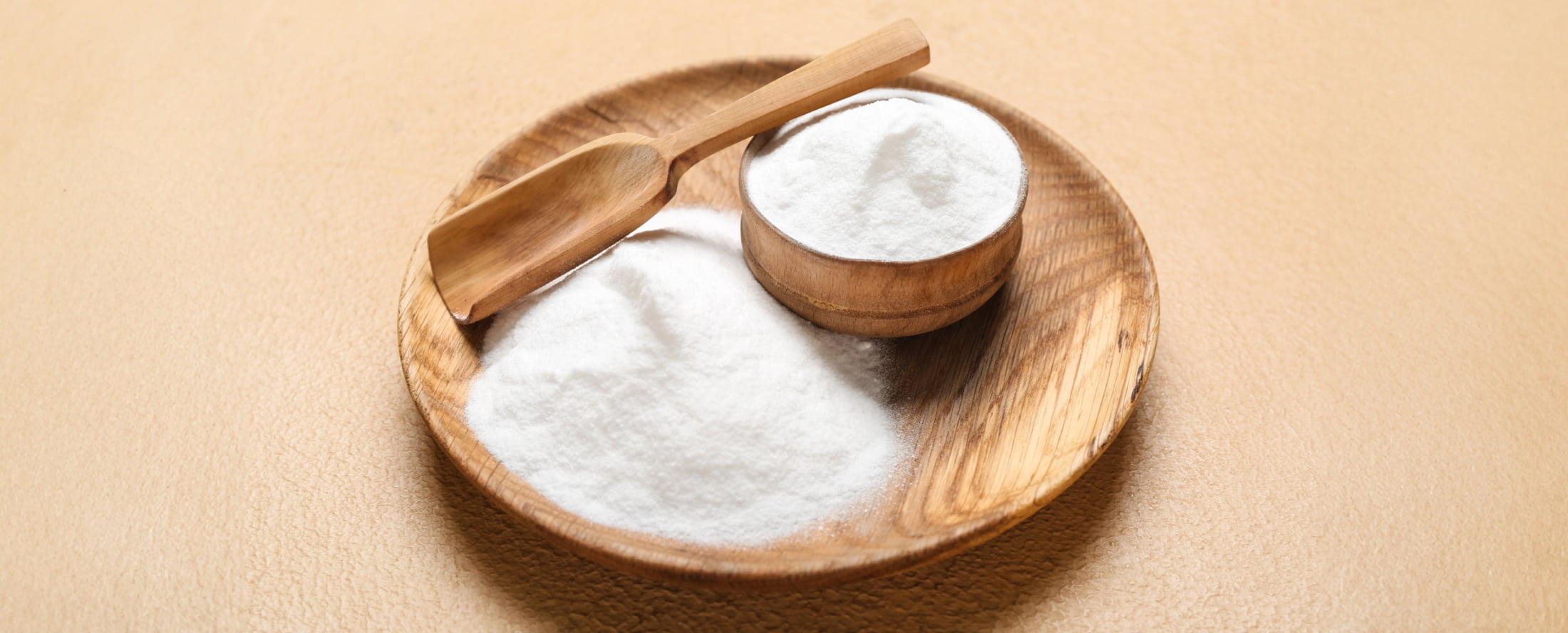Free shipping on all orders over $50 | Subscribe & save 15%
Free shipping on all orders over $50 | Subscribe & save 15%

Sodium bicarbonate for Interstitial Cystitis (IC) is a well-known trick to help with symptoms. Also known as Bladder Pain Syndrome, IC/BPS is a chronic condition that affects the bladder and pelvic area.
It can cause pain and discomfort, and disrupts urinary functions, resulting in urinary urgency and frequency. For most people, it takes a multipoint approach to manage IC/BPS symptoms. Learn more about IC flares and how to find comfort.
Baking soda, also known as sodium bicarbonate, has many therapeutic benefits for people with IC/BPS. In this article, we’ll explore the science behind sodium bicarbonate and its potential for IC/BPS.
Listen to Femetry’s own Dr. Jennifer Anger discuss the many benefits of sodium bicarbonate.
First, let’s look at the nature of IC/BPS. While IC/BPS affects millions in the US alone, we still don’t know what causes this condition. In fact, doctors often struggle to diagnose and treat IC/BPS. This condition actually mimics several other conditions, such as urinary tract infections (UTIs), bladder cancer, and endometriosis.
Chronic inflammation of the bladder lining often accompanies IC/BPS. Common symptoms include pelvic pain, urinary urgency, and urinary frequency. Severity, duration, and symptoms vary from person to person, which makes treatment difficult.
Many people have found success through lifestyle changes, conventional medications, and soothing pelvic floor physical therapy. Additionally, some individuals find relief by exploring alternative and complementary approaches, like adding sodium bicarbonate into their routine.
Sodium bicarbonate is an odorless white powder that has alkaline properties. This means it has the natural ability to neutralize acids. In the context of IC/BPS, patients have discovered that eating and drinking certain acidic foods and beverages cause IC flares.
An IC flare is a sudden worsening of symptoms. A flare could last anywhere from a few hours to a few months with varying degrees of severity.
Sodium bicarbonate could help by reducing the acidity in the urine. Highly acidic urine can irritate the bladder and cause an array of unpleasant symptoms for an IC/BPS sufferer. It may also help soothe the irritated bladder lining that people commonly associate with IC/BPS. As a result, it could alleviate some of the discomfort.
Balancing pH Levels.
The acidity of urine can play a significant role in worsening IC symptoms. While the cause of IC/BPS is unknown, one theory suggests individuals may have lower urinary pH levels. A weak bladder wall can easily get irritated, causing symptoms like needing to pee often and urgently.
Sodium bicarbonate could be useful in helping to balance out the pH levels in the urine. The results: a more alkaline environment that is less irritating to the bladder.

Sodium bicarbonate has many uses, including athletic performance, body odor, and indigestion.

When using sodium bicarbonate for IC/BPS, there are many potential benefits. Here are a few you may know and some that may surprise you:
Baking soda is available at any grocery store. You may be wondering the best way to take it to help with your IC/BPS symptoms. Here are a few suggestions.
Always talk to your doctor before using sodium bicarbonate to manage IC/BPS symptoms. People with certain health conditions, such as high blood pressure, should be cautious about their salt intake and electrolyte levels.
When you have IC/BPS, exploring alternative approaches can be empowering. There is still a lot we don’t know about the condition, but it’s important to stay updated on new treatments. Remember that results can be different for everyone and that your body is special.
Sodium bicarbonate has long since been an effective solution for helping with acid within the body. For IC/BPS, it may be a valuable addition to your holistic approach to managing this challenging condition.
For more information about our potent ingredients, visit our Ingredient Glossary.

Bladder Acid Control contains 50% more calcium glycerophosphate per tablet than another leading brand, plus the addition of sodium bicarbonate. That means you get more acid-reducing power (and can perhaps take less tablets) to achieve the desired effectiveness.
Learn more